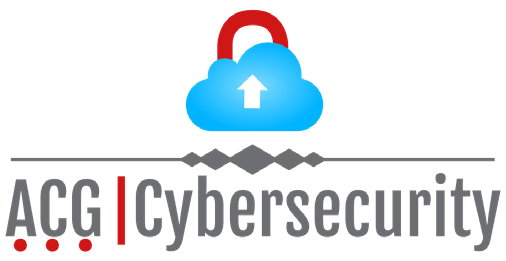Introductory Cybersecurity Course

The target audience for training
Anyone interested in a career in cybersecurity, particularly systems and network technicians and administrators.
What you will learn
At the end of the course, trainees will be able to apply the fundamental principles, standards and tools of IT security in an operational manner.
Training programme
- Duration: 10 days
Day 1
- Day 1 - Morning: Introduction and cybersecurity issues
- Introduction and cybersecurity issues
- Presentation of the objectives, programme and teaching methods.
- Definitions and key concepts of cybersecurity.
- IS security issues: business impact, image, compliance.
- Profiles and motivations of the attackers (hacktivists, cybercriminals, governments, insiders).
- Case study: recent significant incidents and impact analysis.
- Interactive quiz (30 min) on LMS with group correction to validate and consolidate what has been learnt.
Day 1 - Afternoon: Overview of threats and fundamental principles
- Overview of threats and fundamental principles
- Threat typology: APT, phishing, ransomware, fraud, etc.
- The pillars of cybersecurity: CIDT (Confidentiality, Integrity, Availability, Traceability).
- Exercise to identify security needs based on a concrete scenario.
- Vulnerabilities and CVE management.
- Demonstration: simple exploitation of a vulnerability.
- Interactive quiz (30 min) on LMS with group correction to validate and consolidate what has been learnt.
Day 2
- Day 2 - Morning: Understanding and securing the Information System
- Information system knowledge and security
- Mapping the IS and its interconnections.
- Types of network and associated technologies.
- Remote access and secure authentication.
- Roles and responsibilities of directors.
- Interactive quiz (30 min) on LMS with group correction to validate and consolidate what has been learnt.
- Day 2 - Afternoon: Protective measures and supervision
- Protective measures and supervision
- Securing WiFi.
- Hardening of user and mobile workstations.
- Physical security.
- Incident management: detection, response, communication.
- Back-up plan and continuity.
- Introduction to security auditing.
- Interactive quiz (30 min) on LMS with group correction to validate and consolidate what has been learnt.
Day 3
- Day 3 - Morning: Introduction to offensive security
- Introduction to offensive security
- The attacker's tools (scanners, exploits, frameworks).
- Typology of attacks (physical, systems, networks, web).
- APT and advanced targeting.
- Interactive quiz (30 min) on LMS with group correction to validate and consolidate what has been learnt.
- Day 3 - Afternoon: Intrusion test methodology
- Intrusion test methodology
- Steps in a pentest.
- Unified Kill Chain.
- Exercise: analysis of an attack scenario.
- Interactive quiz (30 min) on LMS with group correction to validate and consolidate what has been learnt.
Day 4
- Day 4 - Morning: Reconnaissance phase
- Reconnaissance phase
- Passive recognition and OSINT (open sources).
- Practical exercises: finding information on fictitious targets.
- Interactive quiz (30 min) on LMS with group correction to validate and consolidate what has been learnt.
- Day 4 - Afternoon: Active reconnaissance
- Active recognition
- Network and port scans.
- Tools: Nmap, Metasploit.
- Practical exercises: gathering technical information.
- Interactive quiz (30 min) on LMS with group correction to validate and consolidate what has been learnt.
Day 5
- Day 5 - Morning: Advanced attack techniques
- Advanced attack techniques
- Man-In-The-Middle (MITM).
- Exploitation of vulnerabilities (CVE).
- Interactive quiz (30 min) on LMS with group correction to validate and consolidate what has been learnt.
- Day 5 - Afternoon: Operation and post-operation
- Operation and post-operation
- Searching for and using operating scripts.
- Application attacks.
- Installation of a backdoor.
- Practical exercises: running a scenario.
- Interactive quiz (30 min) on LMS with group correction to validate and consolidate what has been learnt.
Day 6
- Day 6 - Morning: Network security
- Network security
- Firewall: principles and configuration.
- Antivirus and EDR solutions.
- IDS/IPS.
- Interactive quiz (30 min) on LMS with group correction to validate and consolidate what has been learnt.
.
- Day 6 - Afternoon: Segmentation and filtering
- Segmentation and filtering
- Network segmentation.
- Practical exercises: setting up a filtering policy.
- Interactive quiz (30 min) on LMS with group correction to validate and consolidate what has been learnt.
Day 7
- Day 7 - Morning: Applied cryptography
- Applied cryptography
- Symmetrical and asymmetrical encryption.
- Digital signatures.
- Certification authorities (PKI).
- Interactive quiz (30 min) on LMS with group correction to validate and consolidate what has been learnt.
- Day 7 - Afternoon: Secure protocols
- Secure protocols
- VPN, TLS, SSH.
- Practical exercises: implementing encryption.
- Interactive quiz (30 min) on LMS with group correction to validate and consolidate what has been learnt.
Day 8
- Day 8 - Morning: Hardening systems
- Hardening systems
- Methods and best practice.
- Linux: services, rights, logging.
- Interactive quiz (30 min) on LMS with group correction to validate and consolidate what has been learnt.
- Day 8 - Afternoon: Hardening Windows and networks
- Hardening Windows and networks
- Group strategies, services, accounts.
- Network equipment: hardening and upgrades.
- Practical exercises: multi-platform security.
- Interactive quiz (30 min) on LMS with group correction to validate and consolidate what has been learnt.
Day 9
- Day 9 - Morning: Governance and standards
- Governance and standards
- Introduction to ISO 27000.
- Security governance and project mode.
- User and administrator charters.
- Interactive quiz (30 min) on LMS with group correction to validate and consolidate what has been learnt.
- Day 9 - Afternoon : Cybersecurity policies and professions
- Cybersecurity policies and professions
- PSSI and reference documents.
- Overview of professions and roles.
- Case study: audit of a fictitious company.
- Interactive quiz (30 min) on LMS with group correction to validate and consolidate what has been learnt.
Day 10
- Day 10 - Morning: Trends and the future of cybersecurity
- Cybersecurity trends and the future
- New threats and regulatory developments.
- Artificial intelligence and cybersecurity.
- Defence automation.
- Interactive quiz (30 min) on LMS with group correction to validate and consolidate what has been learnt.
- Day 10 - Afternoon: Final role-play, feedback and final assessment
- Final situation
- Case studies incorporating the full range of skills.
- Feedback and debriefing.
- Closing and final assessment.
- Attendance certificates are handed out and participants evaluate the course.
- Interactive quiz (30 min) on LMS with group correction to validate and consolidate what has been learnt.
Trainer profile
An expert consultant-trainer in cybersecurity, combining technical expertise, field experience and teaching know-how, whose technical, professional and teaching skills have been rigorously assessed and validated as part of our internal selection procedures.
Teaching methods and resources:
The course is based on a balanced combination of theoretical and practical approaches, guaranteeing both the acquisition of knowledge and its operational application:
- Structured theoretical input, illustrated by practical examples tailored to the participants' professional context.
- Practical exercises at each stage to help you assimilate the knowledge you have acquired.
- A case study linking the different skill blocks.
- Full educational documentation, supplied in digital format.
- Course evaluation questionnaire at the end of the course, analysed by our teaching team.
- Certificate of acquired skills sent to the trainee at the end of the course.
- End-of-training certificate sent at the same time as the invoice to the company or funding organisation, confirming that the trainee has fully attended the session.
Training objectives
- Have a global vision of cybersecurity and its environment (challenges, ecosystem, etc.)
- Be familiar with the various cybersecurity guidelines, standards and tools
- Understanding cybersecurity-related professions
- Understanding the legal obligations relating to cyber security
- Understand the main risks and threats and how to protect against them
- Identify good practice in IT security.
Assessment method
- Practical exercises at every stage of the course.
- A case study linking the different skill blocks.
- Quiz at the end of each day's training.
- Self-assessment of knowledge acquired by the trainee via a questionnaire.
Training prerequisites
General knowledge of information systems and familiarity with the ANSSI security hygiene guide.
- Language : French
- Level : Fundamental
- Certification body : ACG CYBERACADEMY
- Certification: No
- Accessibility : Yes
- Duration: 10 days
Important information:
Our courses are not registered with the Répertoire National des Certifications Professionnelles (RNCP), but they do comply with the requirements of the Répertoire Spécifique (RS).
